[ad_1]
Our Verdict
PC is the best place to play last year’s best game. It’s massive yet loses no focus, epic on every level, and combines Rockstar’s penchant for immense detail with a surprising amount of heart.
I’ve often thought of Rockstar as gaming’s best time traveller. Vice City had eighties Miami, San Andreas had nineties Los Angeles, Grand Theft Auto IV had noughties New York. However, Rockstar’s PC releases are a little different. More than just travel in time, they stop it completely, freezing the awe and excitement of a new game, allowing it to exist at its best for much longer. Just look at Grand Theft Auto V; a game first released on consoles over six years ago. On PC, it looks like it came out yesterday.
And so it is for Red Dead Redemption II. The destination this time? The alpine forests, verdant hills, smoky cities, and backwater outposts of turn-of-the-century America. The year is 1899, to be exact; a tumultuous period in the young nation’s history, when the power of civilisation finally overthrew the lawless wild west, and authority sought to wipe out the gangs that had persisted, unchecked, for so long.
This is the type of game that doesn’t happen very often – the height of technical ambition and creative power for a videogame studio to do what it wants, how it wants, in as much time as it wants. The cold hard stats do a lot of explaining for us: thousands of staff working through eight years of development; 1,200 performance capture actors; 700 voice actors; some half a million different individual animations; untold tens if not hundreds of millions of pounds. And now a whole year to polish a single PC port. All of that in itself makes Red Dead Redemption II worth playing, just to see the tiniest detail spin seamlessly out into the grandest of scopes. However, Rockstar offers more, telling its most mature, heartfelt, and human story in a world that’s unparalleled.
The question I’m ultimately trying to answer here is not so much ‘should you play Red Dead Redemption II?’ because I can say now, having played it for over 100 hours last year, that I absolutely think you should – it’s the most accomplished and well-crafted open-world game since The Witcher III. The question is more, ‘does this PC port stop time as well as travel through it?’
After 16 or so hours with this latest version, I think it does.
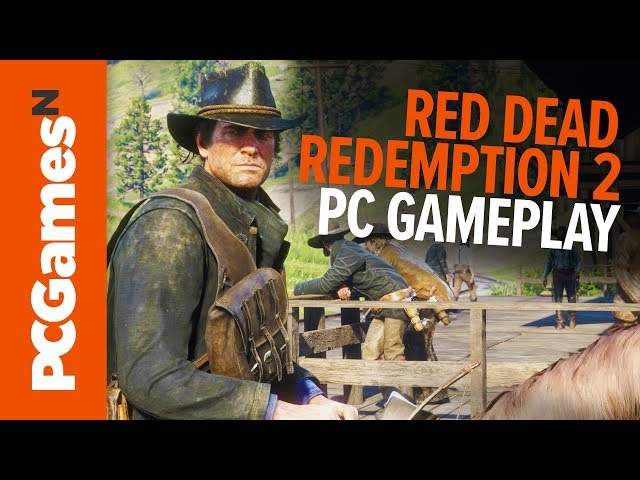
As a narrative prequel to 2010’s Red Dead Redemption, it has a fair bit of heavy lifting to do. After all, its predecessor spent much of its lengthy runtime hinting at the various intricacies behind the downfall of the infamous Van der Linde gang – the moments that came to pass, and the different people who carried those actions out. This game aims to do retrospective service to that tale by filling in the gaps, and as such the two are best viewed as companion pieces. They segue into one another in interesting and unexpected ways, and when viewed as a pair, they augment each other wonderfully.
Red Dead feels much like the antithesis of Grand Theft Auto in terms of pace, tone, and message. That’s not really a surprise – what with the GTA universe being one built on acerbic satire – but what is unexpected is just how earnest and serious Rockstar’s latest effort is. It’s a slow and quite depressing downward spiral into one man’s madness and the rippling ramifications of his egomaniacal vision. And it’s masterfully done.
You are Arthur Morgan, the low drawling, pistol-spinning right-hand-man of gang leader Dutch Van der Linde. The game starts with the gang embroiled in a bit of a pickle, chased into the Grizzly mountains after a bank job goes awry. The group is wrestling with more than inclement weather in order to survive, and there’s absolutely no way you can venture back west to reclaim your belongings or the money you were attempting to steal.
It’s an interesting start. On the one hand, the situation you are in is perilously tense. Several of the gang are dead or captured, and Red Dead Redemption protagonist John Marston is severely injured. You have no food, no supplies, and there’s every chance that the rest of the gang will be captured or killed as soon as they venture back out of the snowy peaks. On the other hand, Rockstar adopts the slow-paced mood of some of the best western movies – the environment is an ever-present threat, and there’s a palpable sense of foreboding that reminds me of Tarantino’s Hateful Eight.
Much of the game is like this, even when you finally do leave the mountains and the world opens up structurally. I love its complete bravery and its eschewing of modern short-term attention spans, letting you take your time just wandering the wilderness in search of new missions to complete, new animals to hunt, and new secrets to find.
It is a purposefully obtuse game in which you pick up items one by one, each with their own individual animations, rather than harvest loot just by looking at it. You hunt slowly and patiently, only able to carry a realistic number of weapons and items. You can also only fast travel via certain points, and your horse is not a perpetual, invincible entity. If it dies while you’re out in the hills or mountains, it’s up to you to walk back to town to buy another – or to find someone to rob of theirs. Actions have consequences in Red Dead II, even the little ones, and while some players may dislike its slower pace, I think it’s the perfect fit for such a natural world.
That natural world looks the best it ever has on PC. Performance itself has been really solid so far, but it’s worth noting for those with lower-end machines that it is a very resource-intensive game. That said, I’ve encountered none of the constant crashes or bugs reported online. At the moment the only issue I’ve had is glitching menus when changing HDR from on to off, and a crash when I decided it might be sensible to put MSAA up to 8x at 4K (see: it wasn’t).
The raft of different graphical and general customisables is especially impressive. Everything from the macro settings – textures, tessellation, shadows, global illumination – to the micro: three types of anti-aliasing; several individual settings for far and near volumetrics; an increased resolution count for clouds; individual settings both for water reflections and refractions; and individual toggles for soft shadows, grass shadows and long shadows.
Customise the West with these RDR2 mods
Using the very tidy Intel i9 9900K CPU and the behemoth that is the RTX 2080Ti, I’ve been able to max the game out (sans MSAA) and maintain a solid 35-45 frames per second at 2160p. To hit 60fps, you’ll need to drop a lot of the settings to a mix of high or medium, or drop resolution if you want to. For me, I prefer the more filmic presentation of 30 with the additional headroom and smoothness of 5-15 frames above that, so having the game looking its best, even if those additional visual upticks aren’t major transformations, is worth the sacrifice.
You can also now adjust the third- and first-person fields of view separately, with the latter mode being much more playable on PC thanks to the increased accuracy of mouse-look. It was sort of a gimmick on console, but here it’s an entirely playable version of the game, and it’s something I’ve leant towards more and more as I’ve played through. Of course, all of that – whether you’re playing on the lowest or highest settings – now comes with a comprehensive photo mode that I’ve not been able to stop using.
It says a lot about the quite remarkable Xbox One X version of the game that the PC port at ultra is not a hugely obvious upgrade in terms of visual quality, but the increased frame rates and subtle embellishments available to high-end PCs are obvious when stacked side by side – especially in the improved quality of volumetric lighting and atmospherics, and the overall environmental density of every single scene. Red Dead Redemption II has always been a sumptuously detailed video game, but this is the best it has ever looked. In one gentle ride up into the mountains, the sheer level of atmosphere in the forests and snowy slopes is breathtaking.
Playing an outlaw? Break some rules with these RDR2 PC cheats
Of course, the pace does spike up from those slower moments in a lot of key set pieces. Bank jobs, train heists, a mission with an air balloon – there’s a range of both standard and less-expected Western action fare throughout, and no one can deny the flair of Rockstar’s design teams in bringing something this accomplished and well-directed to the screen. There is definitely the sense that some missions follow similar paths – ‘the gang is in trouble, and then gets itself into more trouble’ is a regular theme – and that Rockstar’s directorial hand is at times a little too restrictive, but the overall cinematic delivery is such that these moments still allow the continuous suspension of disbelief.
One thing I love is how missions start in one place and end up in another. Unlike Grand Theft Auto, in which almost every mission marker is offered by the character whose icon you’ve gone to select, Red Dead II keeps you guessing where you’ll end up next, which also brings characters with whom you might not usually choose to spend time into the fold. In one mission you’re riding with John Marston to wrangle cattle for a dodgy deal; in another you’re singing in a boat with more of your gang mates; in a third you’re out on your own, following the scent of a legendary animal for a pelt that’ll allow you to create a unique piece of gear. There’s a huge amount of variety here, even in the most mundane activities.
Then there are the big shoot-outs. A small town jail break and a big city tram chase are two of my favourites throughout the story, but the absolute highlight is a shocking full-stop banger at the end of chapter three, set in the plantation ranches of the Bayou to the south-east of the map. It ranks among Rockstar’s best-ever directed scenes, and it’s here that the gang comes together in full force – something that only really happens in a couple of instances. The theatrics are magnificent.
This is thanks in large part to an ensemble cast who all do a remarkable job of authentically humanising even the most unlikeable people in and out of the gang, while also ensuring that the game’s most poignant and shocking moments have the emotional gravitas to resonate. Roger Clark, who plays Arthur, is a particular standout, alongside Benjamin Byron Davis, who returns to provide the performance capture for Dutch. These two men are the central figures of the story, and they’re a marvel to watch while everything around them is collapsing, but gang characters like Micah, Charles, Sadie, Hosea and Sean also get their chances to shine and come into the story in different ways. By the end you’ll absolutely have favourites and least favourites, but every single character makes their mark.
Rockstar also goes the extra mile in terms of mechanical interactions to further develop your bond with the gang. Conversations out of cut scenes, both major and minor, are handled with a single hold of the right mouse button, which expands your dialogue options in a number of ways. This is particularly great mid-mission, when sometimes you have moments of additional story exposition with characters that you wouldn’t see otherwise, but it also diversifies free roam. You can talk politely, threaten people, rob them, or simply antagonise them just for fun. On paper, these options might seem like arbitrary points on a conversational compass, but they allow the game to give you a sense of interaction beyond just aiming a gun and shooting. Some of the funniest moments have come from just playing around with different avenues of dialogue.
This ties into the game’s arc, which is an inversion of those in many others, especially Rockstar’s own. In Grand Theft Auto, you start off with nothing – no money, no cars, no influence – and slowly but surely work your way up the ladder by completing missions and meeting accomplices. The series is full of power fantasies. With Red Dead Redemption II, the opposite is true. You start strong – Arthur’s body and mind are at their peak. He’s a master marksman, horse rider, and gang leader. As time goes on, all of those things are tested. No matter how many people you meet – and you do meet a lot of fascinating characters throughout the 50-hour story – your trajectory is an inevitably downward one, as the events of the original Red Dead Redemption demand.
That inevitability could, for other studios, be a hindrance, but Rockstar finds a way to lead you to a place that feels natural and right for all of its characters, while also maintaining a sense of excitement and discovery throughout. There is one particular chapter that feels overly drawn out, perhaps even unnecessary, but once the credits roll, no matter how your Arthur turned out, this story is an immensely successful and memorable one. It’s epic, human, introspective, and dramatic in its own right, all the while placing its predecessor in a new and even more touching light.
Can you run it? Check the Red Dead Redemption 2 requirements at PCGameBenchmark.
[ad_1]

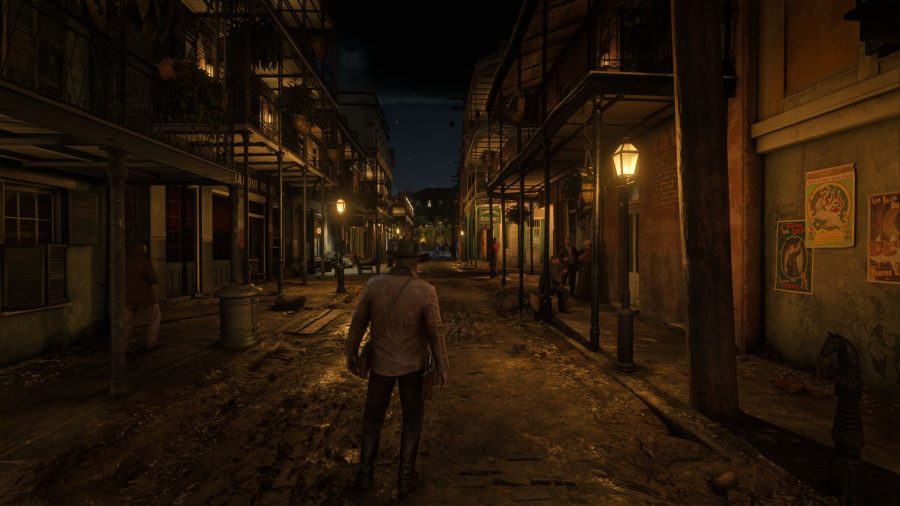
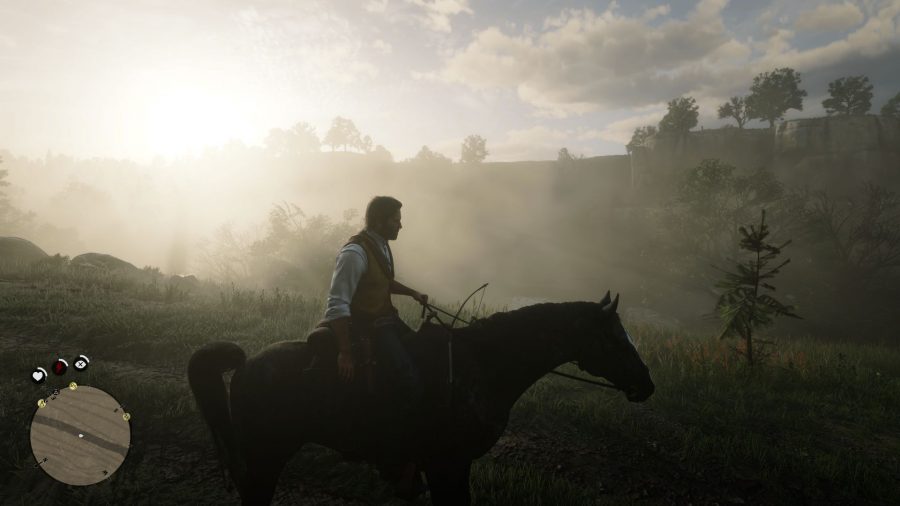
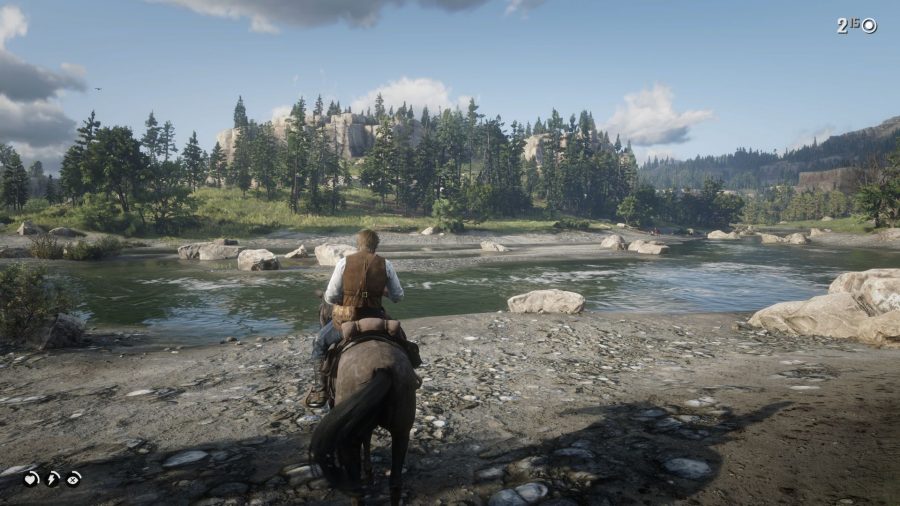
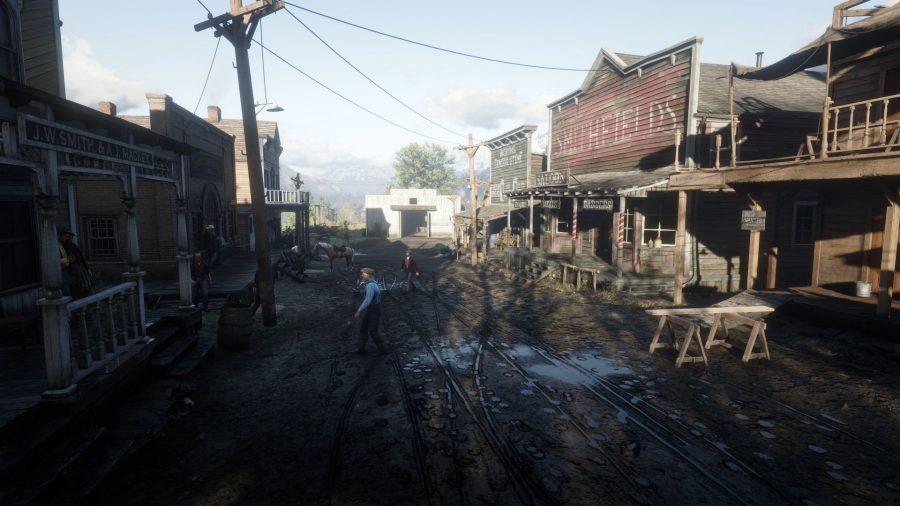
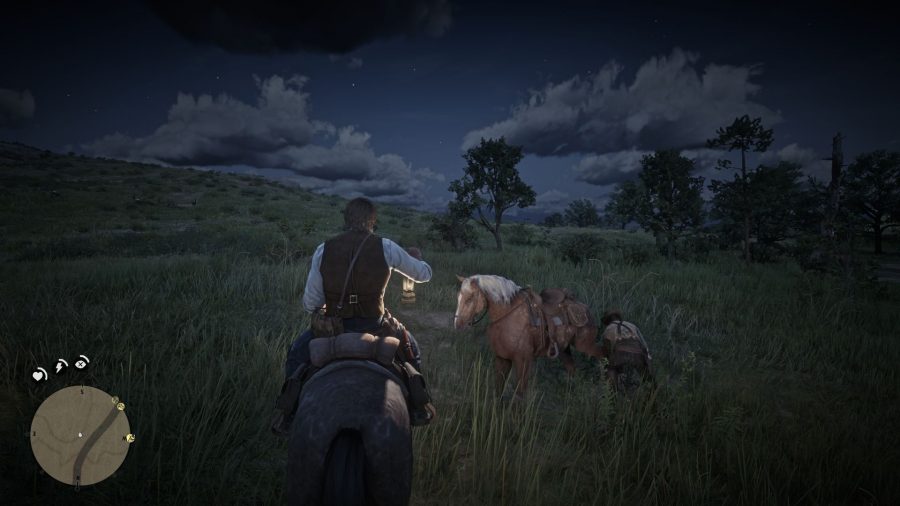
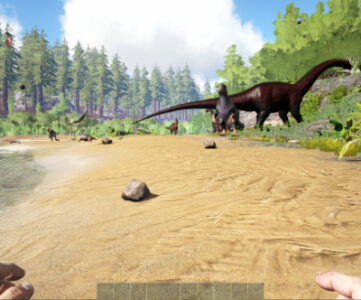


[…] out our Red Dead Redemption 2 review to see just how the open world lets you play as you please, with story missions that open up or […]